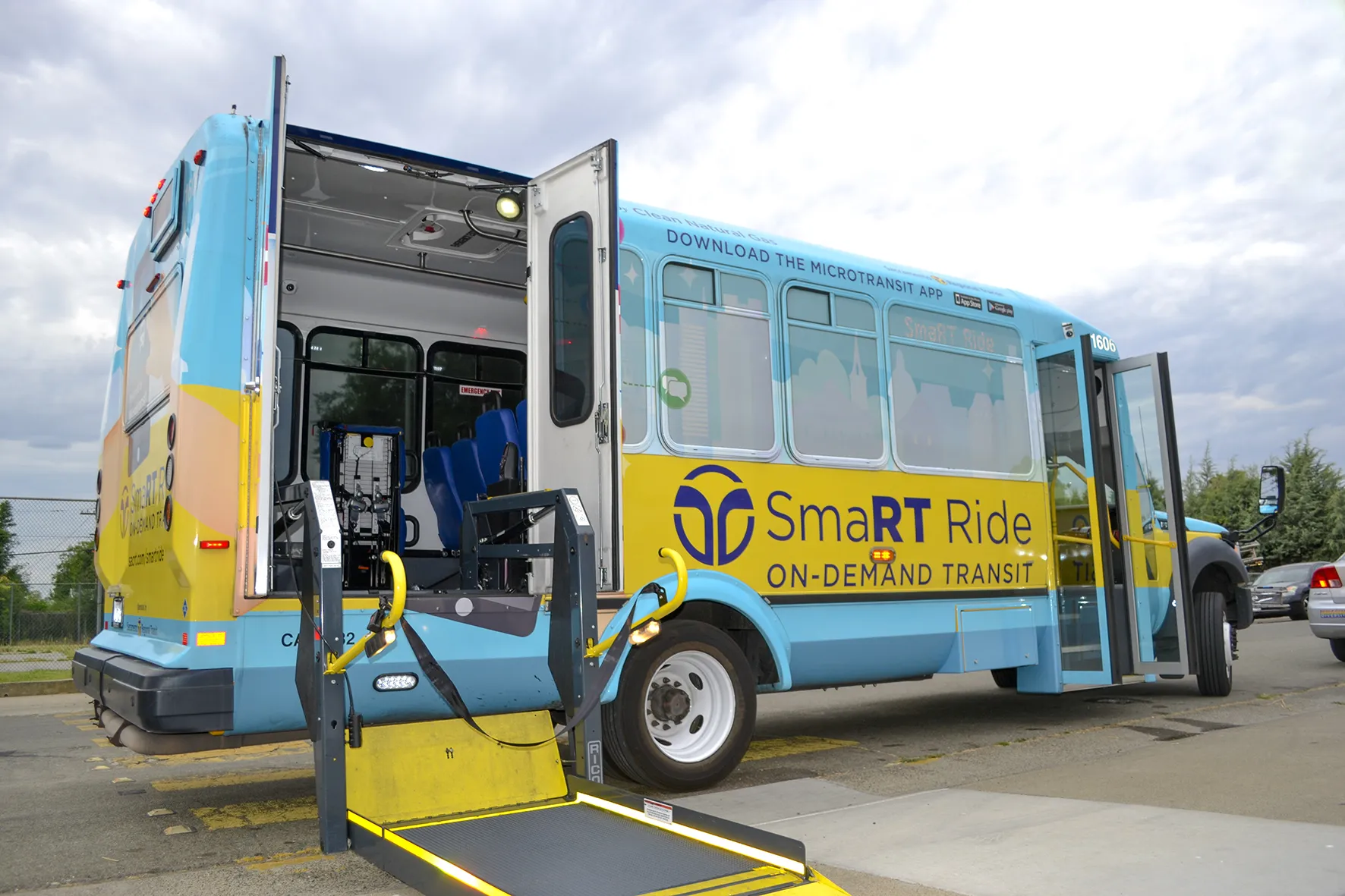
Using the SmaRT Ride app, riders can hail a vehicle from their smartphone or phone to book a ride.Passengers will be directed to a nearby ‘virtual bus stop’ which, Via says, will allow for quick trips without lengthy detours or fixed routes.
The service consists of three types of ‘neighbourhood-friendly’ shuttle buses which can manoeuvre on residential streets with up to 22 passengers.
A ride costs $2.50 - or $1.25 for pensioners and those with disabilities. Free trips are available for young riders with a RydeFreeRT sticker or pass and groups of five people.
The deployment follows a $12 million grant provided by the Sacramento Transportation Authority to expand microtransit into new communities throughout the region.
SmaRT Ride is operating in Citrus Heights, Franklin-South Sacramento, Rancho Cordova, Arden, Carmichael, Downtown-Midtown-East Sacramento, Gerber-Calvine, Folsom, and North Sacramento.
As part of the expansion, SacRT rolled out six electric shuttles in Downtown-Midtown Sacramento. In the next six months, three more shuttles will operate in Franklin-South Sacramento.










